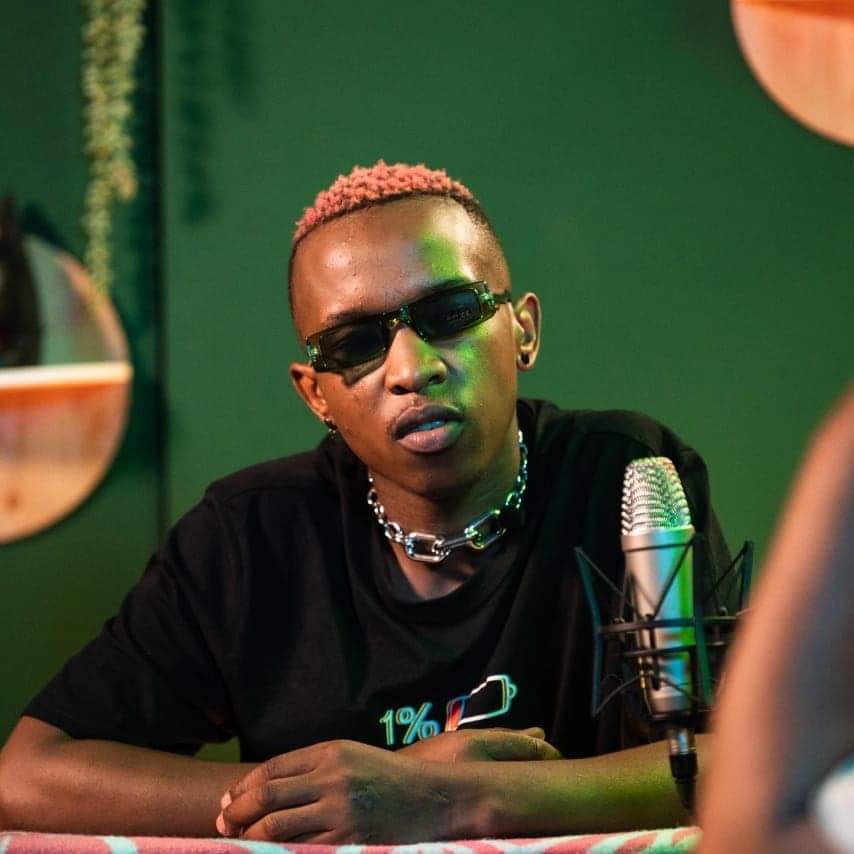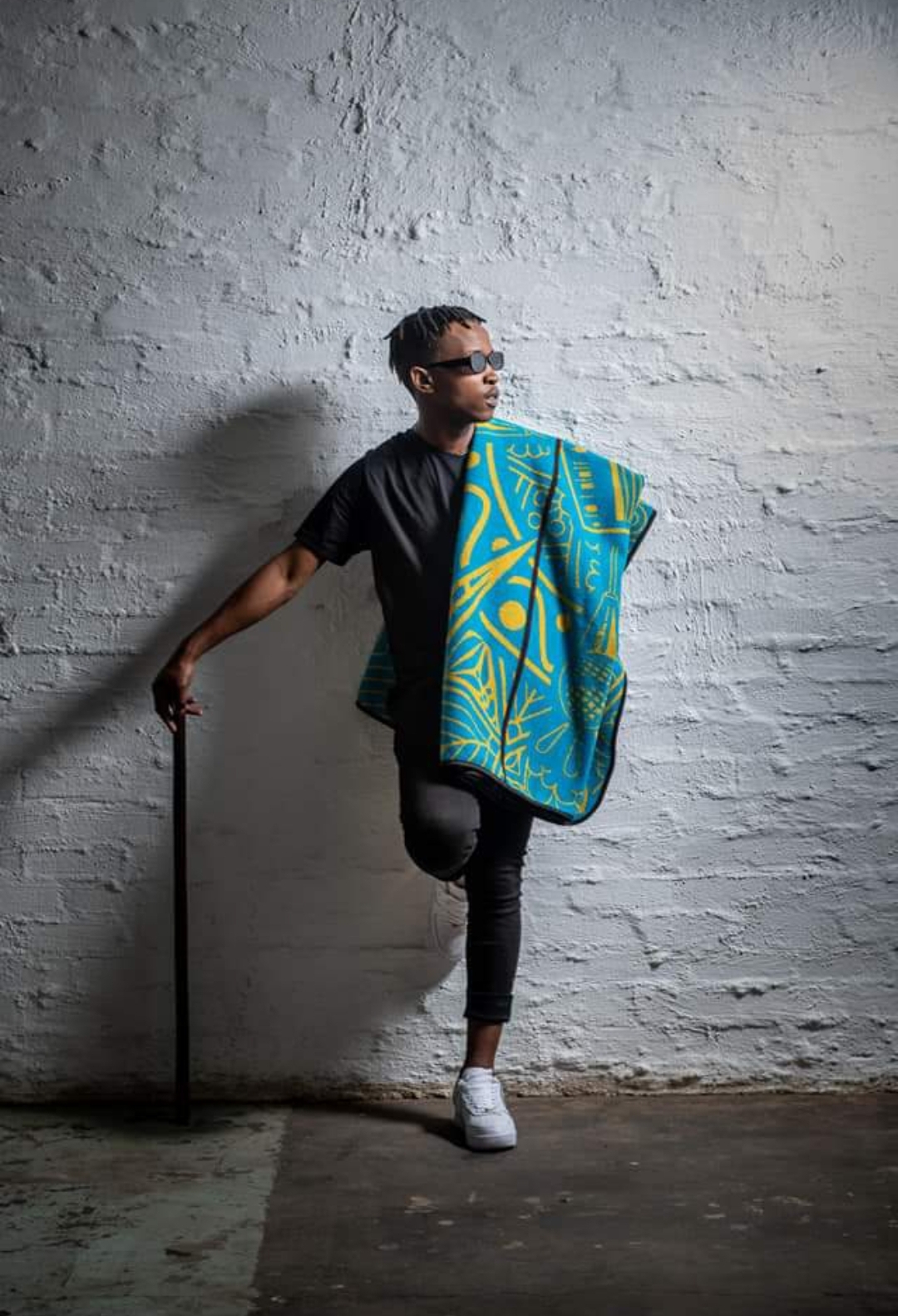Few artists embody the spirit of a nation quite like Ntate Stunna. From his humble beginnings in Lesotho to the international stage, his journey has been a mix of cultural pride, bold experimentation, and unshakable resilience. In this exclusive conversation with Newsday, Stunna opens up about his career growth, the birth of Free Strata, his vision for Sesotho Fashioneng, his highly anticipated album Mosotho Gauteng, and the legacy he hopes to leave behind.
Newsday: People often call you “the voice of a generation.” When you look back at your journey, what does that mean to you?
Ntate Stunna (NS): Like everything in life, it came in stages. When I started out, I was just looking up to the biggest local guys at that time. I just wanted my reach to be as big as Lesotho. But when my music started echoing as far as the Free State, that was when I started dreaming bigger.
Being called the ‘voice of a generation’ actually makes sense to me, because I have grown with my people. Some of them discovered my music back in high school, and now they are part of the working class — still entertained by the same voice they fell in love with over a decade ago. It is humbling to know my sound has been the soundtrack to their growth.
Newsaday: What were some of the key moments that made you feel like you were really breaking through?
NS: There have been a few key moments. One was my first stadium performance — hearing a crowd rap my lyrics word for word hit different. Another was crossing the border, performing in neighboring countries, and realising my music was resonating beyond Lesotho. Then there are moments like winning my first two SAMA awards, hearing my song on radio for the first time, or even seeing strangers wearing Sesotho Fashioneng. Each of those moments was like a validation stamp.
Newsday: Coming from Lesotho, what challenges have shaped your path?
NS: The industry here is still growing, so there aren’t as many structures or resources compared to bigger markets. Things like quality studio time, marketing budgets, or even access to platforms were a real struggle.
But those challenges built my character. They pushed me to innovate and create my own path instead of waiting for opportunities. And I think that’s why people connect with my story — they see the hustle, they see someone who started with nothing but belief, and still managed to break barriers.
Newsday: How has your music evolved over the years?
NS: I guess I have always been rooted in culture. During the days when I dropped “Mookho,” my style was exposed to that sound which was trending a lot back then, and I fell in love with it. My music has always been inspired by what I consume. When I was into trap, my style changed, and later on when amapiano first became big in the mainstream, I did a song called “Skupu,” even though the main genre locally was tshepe.
Newsday: You have pioneered the subgenre Free Strata. How did it come about?
NS: I was inspired by the uniqueness of the sound created by 2Point1 in their track “Batho Bana ke Bana,” which was a hit back in 2018/19. The one thing that caught my attention was the drum set in it. Later, I worked with 2Point1 and we released “Stimela,” which was a hit but we couldn’t classify it.
So because of that classification issue, we decided to give the subgenre a name and push it as a Free State and Lesotho amapiano sound. That’s how Free Strata was born.
Newsday: Do you see Free Strata growing into a bigger movement?
NS: I hope it does grow into a big movement, but because it is a subgenre, it will depend a lot on the growth of amapiano as a whole.
Newsday: The Sesotho Fashioneng festival is returning in December. What do you hope it becomes?
NS: I love that Basotho took the event very seriously in its first edition. I want to see it grow into not a Ntate Stunna event, but a Basotho festival that celebrates big headlines such as Sannere, Litsepe, and others over the years. Let it be a Basotho celebration of our music and culture in a modern way.
Newsday: How do you see the link between music and fashion?
NS: A musician is heavily defined by their appearance and how they represent themselves. Music and fashion go hand in glove, which is why I have a clothing line called Sesotho Fashioneng. It is my style, and I wear it. We even see it with some awards, where an artist will be recognized for best style.
Newsday: Fans are anticipating your upcoming album Mosotho Gauteng. What’s the story behind it?
NS: The story is that everything is a result of what I’ve been exposed to. I see myself as “six gun spice” — when I come into something, I have to blend in, hence the title Mosotho Gauteng. It’s about me going after my dreams as a Mosotho wanting to make it outside my home country and everything I have ever known. So it’s all about my experience.
Newsday: What kind of sound can people expect from it?
NS: It was planned to be a dance album, so not much Free Strata, but other sounds that are mainly dance influenced. We decided to release it as singles because it gives us an idea of what people are consuming more, and singles perform way better than albums lately. The idea was to be spontaneous, and that’s what people will hear. All the singles were dropped after reaching at least 100,000 streams of the previous release.
Newsday: How does it feel to inspire a generation of young Basotho?
NS: It is such a big deal to me and it warms my heart. That’s where I used to be growing up, being a fan, and I know how it feels. So it means I’ve created a path that inspires the next generation.
Newsday: What responsibility comes with being the voice of a generation?
NS: My biggest responsibility is that I have to make it. I made it this far, but I have an even bigger responsibility to end well. There are a lot of big names that made it but fame and money destroyed them. I don’t want to be one of those. I’m in a position where parents use me as an example of success when their kids say they want to do music.
Newsday: Beyond music, what is the bigger dream?
NS: I am inspired by 50 Cent — the rapper and businessman he is. He started and ended well, moving from being a rapper to being a businessman in multiple sectors. That’s exactly what I want. I want Penya Play to be a big production company in the film industry. I’m already investing in it and looking forward to the growth.
Newsday: Before we close, can you share what Malome Vector meant to you?
NS: Vector has indeed left a void that cannot be closed until today. Sometimes I get mad at him for leaving me without a warning, but it is one of those things where no one knew, and that is why it still hurts. On a personal and professional level, there are things I could only share with him and him alone , that is the gap he left, things I can’t tell him now.
Summary
- During the days when I dropped “Mookho,” my style was exposed to that sound which was trending a lot back then, and I fell in love with it.
- When I was into trap, my style changed, and later on when amapiano first became big in the mainstream, I did a song called “Skupu,” even though the main genre locally was tshepe.
- I hope it does grow into a big movement, but because it is a subgenre, it will depend a lot on the growth of amapiano as a whole.

A Professional Communications practitioner with a wealth of expertise in marketing, public speaking, communication and media relations. I believe in learning everyday and improving one’s personal and professional capabilities.
* A former journalist and radio host who is passionate about media and it’s impact on society.









